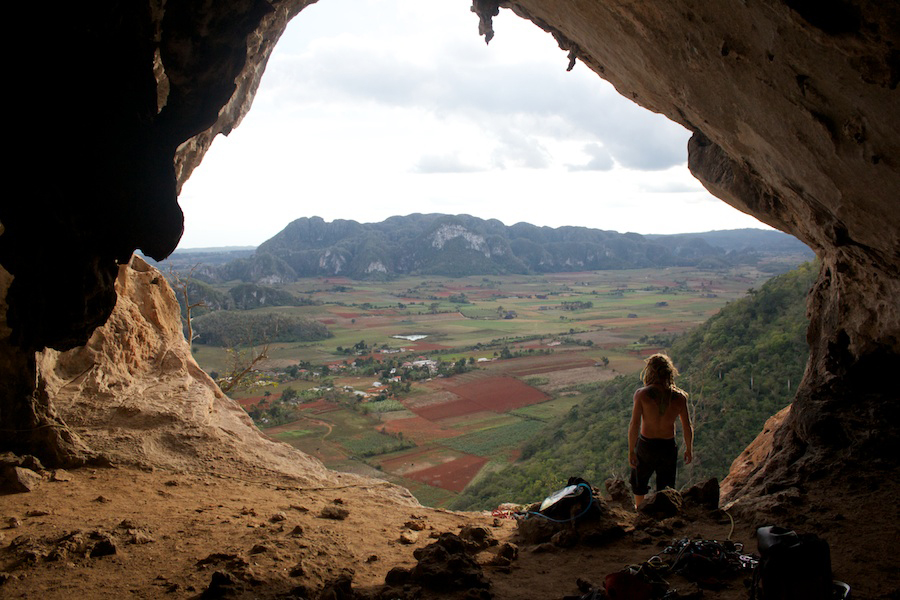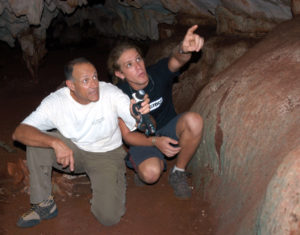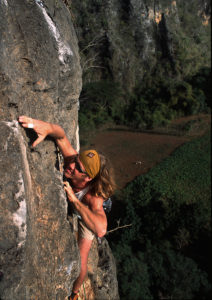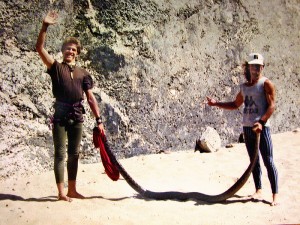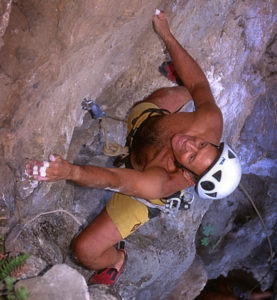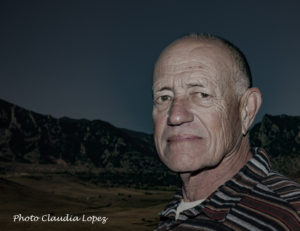Cuba Climbing is a website; it is an out-of-print guidebook still published as an e-Book; it is a project that recruits volunteer climbers to bring gear to sustain the Cuban climbing community; it is part of the crowdfunding campaign, Bolts4Climbers, that has brought 500 titanium bolts to Cuba; it is affiliated with Acceso PanAm, a conservation organization to protect climbing areas in all Latin America; and it is the product of two individuals acting out of love for Cuba and climbing.
The focus of rock climbing in Cuba is the Valle de Viñales in the western, mountainous province of Pinar del Río. There are now groups of climbers in across Cuba. Most new climbers and new route development is in central and eastern Cuba.
Viñales remains the heart of climbing for visitors and Cubans alike. The climbing is superlative, cranking jugs and pockets in chiseled karst limestone on improbable lines through stunning overhangs of stalactites and tufa columns.
Travel, digs, food, and climbing partners are no sweat. Mild weather, and everything from isolated beaches to caving and horseback riding on rest days. Add an exciting, sensuous nightlife, the gregarious, vivacious Cuban people, and Cuba is the best outdoor adventure experience in the Western Hemisphere.
The authors of the Cuba Climbing guidebook are Aníbal Fernández and Armando Menocal the first Cuban climber and the first foreigner, albeit a Cuban-American, to “discover” Cuba’s climbing potential. Passionate about Cuba, their activism for climbing forced Aníbal to leave his country for a decade and Armando to be excluded and declared inadmissible to Cuba for 11 years.
Both have returned. Aníbal divides his time between La Habana and Viñales. Armando has rebuilt the house he was forced to abandon in 2005, and has resumed splitting his time between the U.S and Cuba.
Aníbal’s and Armando’s stories have been covered in greater depth in the articles in the climbing media. Anibal exile in, “First Sinner in Paradise” and Armando’s ousting in, “The Savior” and short, even lighthearted podcast with Alex Honnold.
Aníbal Fernández was born in 1980 in La Habana and has been involved in every stage of Cuban climbing development: exploring new areas for potential, pioneering many first ascents, and motivating an entire generation of Cubans to adopt a new lifestyle. Since leaving Cuba, Aníbal has climbed extensively in North America and Europe and has hundreds of first ascents under his belt, as well as a Rock Guide certification from Exum Mountain Guides. He lived in Toronto for 10 years, but says of that time, “I never wanted to emigrate. I can’t help but feeling in exile. Every day there isn’t a moment when I would not leave it all and return to La Habana. I carry my island around with me.”
Armando Menocal was born to Cuban parents in Miami, Florida. His roots and heart are in Cuba. His great-grandmother was a cousin of Mario García-Menocal, a rebel who fought to liberate Cuba from Spanish rule and governed Cuba as president from 1912 to 1921. Armando has climbed for 40 years in five continents, lived in Nepal and the Grand Tetons, and worked as a rock and alpine guide for Exum Mountain Guide. He founded the Access Fund and Acceso PanAm. A decade of activism resulted in Armando being banned from Cuba. His unidentified sins have been pardoned. He and his wife Laura have rebuilt their home in Viñales.
Banishment for climbing led Armando to start Acceso PanAm, a climbers organization to protect and defend climbing across all of the Latin America. Acceso PanAm provides the support it can, despite the government’s refusal to allow the Cubans climbers to organize let alone speak out for themselves. Acceso PanAm has made it possible for some leading Cuban climbers to participate in international events in Canada, Mexico, and Brazil.

